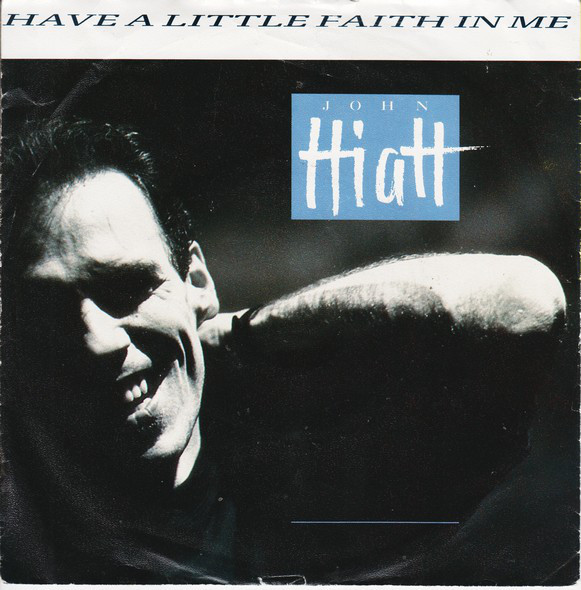
Inspired by the August 20 birthdays of Boogie Down Productions’ KRS-One, Isaac Hayes, John Hiatt, Thin Lizzy’s Phil Lynott, The Knack’s Doug Fieger, Demi Lovato, Limp Bizkit’s Fred Durst, Jim Reeves, Hawkwind’s Dave Brock, and Nikki Leonti.

Inspired by the August 20 birthdays of Boogie Down Productions’ KRS-One, Isaac Hayes, John Hiatt, Thin Lizzy’s Phil Lynott, The Knack’s Doug Fieger, Demi Lovato, Limp Bizkit’s Fred Durst, Jim Reeves, Hawkwind’s Dave Brock, and Nikki Leonti.
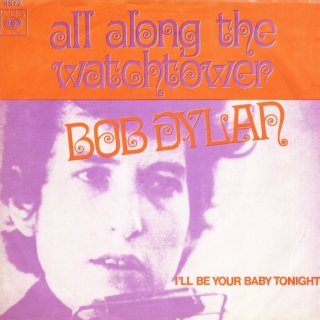
Inspired by the May 24 birthdays of Bob Dylan, Patti LaBelle, Rosanne Cash, Tommy Chong, Heavy D, Cameo’s Larry Blackmon, Prince Buster, Mims, Little Nell and John C. Reilly.
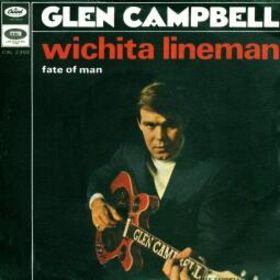
Inspired by Earth Day and the April 22 birthdays of Glen Campbell, Ace/Mike + the Mechanics’ Paul Carrack, Peter Frampton, Von Bondies’ Jason Stollsteimer, silverchair’s Daniel Johns, Larry Groce, Jack Nitzsche, Lipps Inc.’s Cynthia Johnson, UTFO’s Mix Master Ice, Moose Jackson and Eddie Albert.
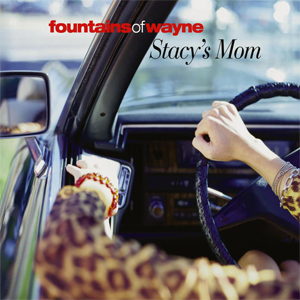
Inspired by the April 2 birthdays of Marvin Gaye, Bananarama’s Keren Woodward, Migos’ Quavo, Emmylou Harris, Yung Joc, Eilert Pilarm and Leon Russell, and the passing of Cristina and Fountains of Wayne’s Adam Schlesinger.
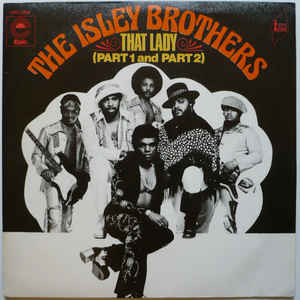
Inspired by the March 7 birthdays of Ernie Isley, J. Geils Band’s Peter Wolf, Love’s Arthur Lee, Townes Van Zandt, and Taylor Dayne.
It’s a death trap, it’s a suicide rap
You gotta get out while you’re young
New Jersey does not have an official state song. There have been attempts to adopt one since at least 1939, when the state’s Board of Education held a contest to find a suitable number. They named Samuel F. Monroe’s “The New Jersey Loyalty Song” as the contest’s winner, but it was not good enough to be the official state song.
In 1972, the state legislature proposed that Joseph “Red” Mascara’s “I’m from New Jersey” be the state’s song, but Governor William Cahill vetoed the measure, stating succinctly about the song “It stinks.”
In March of 1980, radio d.j. Carol Miller started a petition to have “Born to Run,” written and recorded by New Jersey’s favorite son, Bruce Springsteen, be named the state song. Three state assemblypersons drafted a resolution declaring “Born to Run” “as the unofficial *rock* theme of our State’s youth.” I’m confused to as to how an official resolution can name an “unofficial” theme, just as the state’s senate was confused as to how a song that includes the lyrics that open this post expresses pride in where one’s from. The bid died.
The song also includes these lyrics that tickle my friend Audrey so: Someday, girl, I don’t know when, we’re gonna get to that place where we really wanna go.
Oh, that place!
By the way, I got out of New Jersey when I was 24.
This week’s Throwback Thursday playlist spotlights some of the best tunes from 1975, kicking off with what is unofficially New Jersey’s unofficial state song, Bruce Springsteen’s “Born to Run.”
Click here to like Tunes du Jour on Facebook!
Follow me on Twitter: @TunesDuJour
Follow me on Instagram: @GlennSchwartz
In 1968, songwriter Mark James, whose hit compositions include “Hooked on a Feeling” and “Always on My Mind,” was married to his first wife, but he still had feelings for his childhood sweetheart, who also was married. Said James, “My wife suspected I had those feelings, so it was a confusing time for me. I felt as though all three of us were all caught in this trap that we couldn’t walk out of.”
He recorded and released a song he wrote based on his situation, but it flopped.
A year later, producer Chips Moman brought the song to Elvis Presley. Elvis loved it and was confident he could make it a hit.
Elvis was acknowledged as the King of Rock and Roll. During the ten years from 1956 through 1965 he scored 33 top ten singles, including 17 #1s. Then he hit a relative dry spell, with no top tens in 1966, 1967 or 1968.
The King recorded Mark James’ song. It became Elvis’ first #1 single since “Good Luck Charm” in 1962. The song, “Suspicious Minds,” was Presley’s final #1 in the US. Between 1956 and 1969, Elvis spent 79 weeks at #1, more than any other act.
In 2004, Rolling Stone magazine ranked “Suspicious Minds” at no. 91 on their list of the 500 Greatest Songs of All Time.
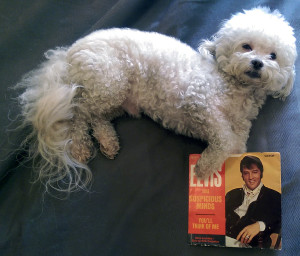
This week, Tunes du Jour’s Throwback Thursday playlist spotlights twenty of the best singles of 1969, kicking off with Elvis Presley’s “Suspicious Minds.”
Click here to like Tunes du Jour on Facebook!
Follow me on Twitter: @TunesDuJour
An instrumental performed by then new Eagles member Don Felder was submitted to his bandmates Glenn Frey and Don Henley to add lyrics. The first working title the guys gave the song was “Mexican Reggae.”
Henley was determined to create the perfect song, spending eight months in the studio working on “Mexican Reggae,” which came to be called “Hotel California.” A lyric referring to the band Steely Dan was added (“They stab it with their steely knives but they just can’t kill the beast”) after Steely Dan included the lyric “Turn up the Eagles, the neighbors are listening” on their song “Everything You Did.”
In 2009, music critic John Soeder asked Don Henley about the lyric “So I called up the Captain / ‘Please bring me my wine’ / He said, ‘We haven’t had that spirit here since 1969’,” pointing out that wine isn’t a spirit, as wine is fermented whereas spirits are distilled. Soeder asked the singer/composer “Do you regret that lyric?” Henley replied “Believe me, I’ve consumed enough alcoholic beverages in my time to know how they are made and what the proper nomenclature is….My only regret would be having to explain it in detail to you, which would defeat the purpose of using literary devices in songwriting and lower the discussion to some silly and irrelevant argument about chemical processes.” Insert steely knife here!
This week for Throwback Thursday, Tunes du Jour listens to the hits of 1977, kicking off with Eagles’ “Hotel California.”
Click here to like Tunes du Jour on Facebook!
Follow me on Twitter: @TunesDuJour
Thinking of moving but don’t know where to? Let today’s playlist help you out. It kicks off with “Chicago” by Graham Nash. Nash turns 73 today.
Click here to like Tunes du Jour on Facebook!
Follow me on Twitter: @TunesDuJour
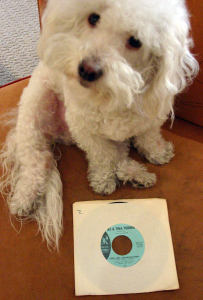
By 1966, the recording duo Ike & Tina Turner and the record producer Phil Spector could use a turnaround in their luck.
Ike & Tina Turner’s first hit song was 1960’s “A Fool in Love.” Two more top forty pop and four more r&b top ten hits followed over the next couple of years.
Phil Spector’s first hit as a producer was The Teddy Bears’ “To Know Him Is to Love Him,” a #1 pop single in 1958. Over the next seven years Phil Spector produced twenty-five top 40 pop hits, including such classics as The Ronettes’ “Be My Baby,” The Righteous Brothers’ “You’ve Lost That Lovin’ Feeling” and “Unchained Melody,” The Crystals’ “He’s a Rebel” and “Da Doo Ron Ron,” and Curtis Lee’s “Pretty Little Angel Eyes.”
Fast forward to late 1965. Ike & Tina Turner’s last top 40 pop hit was “Poor Fool,” which peaked at #38 in early 1962. It went top ten on the r&b chart, as did its follow-up, “Tra La La La,” but successive singles failed to do as well.
Despite scoring four top ten singles on Spector’s Philles Records, The Righteous Brothers sued the producer/record company head to get off the label, saying their contract was unenforceable. It was announced in early 1966 that the duo signed with another label. Their first single for that label, Verve, was a #1 hit – “(You’re My) Soul and Inspiration.” Spector lost his star attraction, and the other acts in his stable had lost luster. The Ronettes’ most recent top 40 hit was 1964’s “Walking in the Rain.” The Crystals’ most recent top 40 hit was 1963’s “Then He Kissed Me.”
In 1965 the Ike & Tina Turner Revue performed The Galaxy in Los Angeles. In the audience was Phil Spector. He loved their act and booked them to appear on The Big TNT Show, a televised concert for which he was the associate producer and musical director. Also appearing on the program were The Byrds, Ray Charles, Bo Diddley, The Lovin’ Spoonful, Donovan, Joan Baez, Petula Clark, and Roger Miller.
Spector was taken by Tina’s performance. “I said, God, if I could make a number-one record with her she could go on Ed Sullivan, she could go to Las Vegas; she could break the color barrier.” At the time, Ike & Tina were singed to Loma Records, a division of Warner Brothers Records. None of their releases hit the pop charts. Spector negotiated a release from their Loma contract. Spector wanted Tina, not Ike, so he paid Loma $20,000 to buy out the duo’s contract, on the condition that Ike stay away from the studio while Tina recorded. Ike accepted this offer, with the stipulation that the resulting record still be credited to Ike & Tina Turner.
To come up with a suitable song, Spector turned to the husband and wife songwriting team of Jeff Barry and Ellie Greenwich, who, with Spector, wrote “Be My Baby” and “Da Doo Ron Ron” and also wrote “Leader of the Pack” (with Shadow Morton) and “Do Wah Diddy Diddy.” CORRECTION: former husband and wife songwriting team – Barry and Greenfield divorced in December 1965, just a few weeks before Spector asked them to write a song for Tina.
Though freshly-divorced, they both came to the table, each with a different unfinished song. The combination of the three songs resulted in “River Deep – Mountain High,” with the melody of the verses coming from Greenwich, the melody of the chorus coming from Spector, and most of the lyrics coming from Barry.
The first of five recording sessions for the single was in February 1966. Hanging out in the control room were a couple of folks you may have heard of – Mick Jagger and Brian Wilson. To achieve his vision Spector used 21 background vocalists and 21 musicians, including Glen Campbell, Leon Russell and Hal Blaine. The completed record cost around $22,000 to make. Said Bob Krasnow, the head of Loma Records, “In those days, you could make five albums for twenty thousand dollars. And this was just a single – one side of a single.”
After years with Ike Turner, Tina must have been relieved to be able to go into the studio without Ike and with Phil Spector, a man who treated women with respect – scratch that thought. In her autobiography, I, Tina, she recounts a recording session with Spector. “That intro – ‘When I was a little girl…’ – I must have sung that five hundred thousand times, and I don’t know if I ever got it just the way he wanted it. I would sing it, and he would say, ‘That’s very close, very close. We’ll try it again.’ I don’t remember him saying, ‘Got it.’ Pretty soon, I was drenched with sweat. I had to take off my shirt and stand there in my bra to sing, that’s how hard I was working on that song.”
A River Deep – Mountain High album, with a cover photo taken by a broke Hollywood actor named Dennis Hopper, wouldn’t be released until 1969. However, the “River Deep – Mountain High” single came out in the United States on May 14, 1966. It entered the Hot 100 at #98. A week later it was #94. One week after that #93. The next week it rose to #88.
And that was it. The record that was to be the triumphant return of Ike & Tina Turner and Phi Spector stayed on the chart for only four weeks. Looking back, Tina concluded “It was too black for the pop stations, and too pop for the black stations.” Ike agreed.
After the single’s failure, Spector became a semi-recluse. It would be three years before another Phil Spector’s production was on the Hot 100.
In the United Kingdom, however, it was a different story. “River Deep – Mountain High” peaked at #3 there. George Harrison called it “a perfect record from start to finish – you couldn’t improve on it.” Harrison would later have Spector co-produce his All Things Must Pass album, which included the classic “My Sweet Lord.”
In praising Tina, Mick Jagger said “’River Deep-Mountain High’ was an excellent record because she had the voice to get out in front of Phil Spector’s so-called wall of sound.” The Rolling Stones invited Ike & Tina to open for them on their tour that began in the autumn of 1966.
In 1999, “River Deep – Mountain High” was inducted in the Grammy Hall of Fame. Rolling Stone magazine put it at #33 on its list of the 500 Greatest Songs of All Time.
Tina Turner turns 75 today. Here are twenty career highlights, kicking off with the classic “River Deep – Mountain High.”
Read more about Tina Turner here.
Click here to like Tunes du Jour on Facebook!